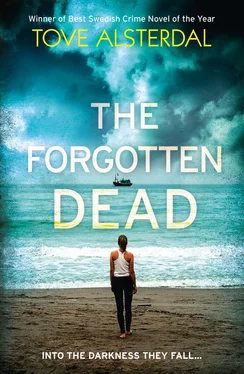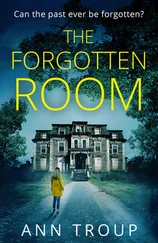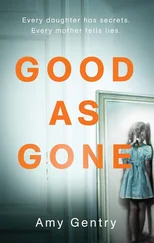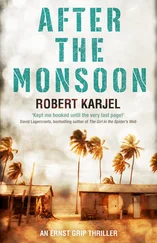I tapped in his speed-dial number for the eleventh time this morning.
If you answer, I promise we’ll do whatever you want, I thought as the call went through. We’ll leave Manhattan and buy that house in Norwood, New Jersey. If it has already been sold, we’ll find one just like it. And then we’ll have babies and invite the neighbours over for barbecues, and I’ll quit the theatre and start sewing appliquéd baby hats. Whatever. If only you pick up.
I heard a click on the line signalling his voicemail. Hi, you’ve reached Patrick Cornwall …
The same message I’d heard when I woke up in the morning, all last week. It sounded emptier with each day that passed.
If I’m not answering my phone, I’m probably out on a job, so please leave a message after the beep.
It had been ten days since he’d called.
That was on a Friday.
I was in Boston with Benji, my assistant, to pick up a chair dating from the Czarist period in Russia. That piece of furniture was the last puzzle piece needed for the staging of Chekhov’s Three Sisters . It had belonged to an ageing hairdresser’s paternal grandmother, who had fled St Petersburg in 1917.
Patrick had phoned just after I finished the transaction. Benji and I had each taken hold of one side of the chair and were on our way down a narrow flight of stairs in a building that looked like it might collapse at any minute from sheer exhaustion.
‘I just wanted to say goodnight,’ said Patrick from across the Atlantic. ‘I miss you so much.’
‘This isn’t the best time,’ I said, propping the chair onto a step while Benji held on tightly so the precious object wouldn’t tumble down the stairs.
The hairdresser stood in the doorway above us, watching nervously. I really wanted to get out of there before he changed his mind. He’d told us that this chair, which he’d inherited from his grandmother, was the dearest thing he owned, but he wanted to see Mother Russia before he died. Otherwise he would never have even considered selling it. If he had enough money, he wanted to buy a burial plot near the Alexander Nevsky church in St Petersburg, where the great men of his native country had been laid to rest.
‘You won’t believe what a story this is going to be,’ Patrick went on. ‘If it doesn’t turn out to be the investigative story of the year, I don’t know what—’
‘Are you in a bar or something?’ I glanced at my watch. It was 5.45 in Boston. Midnight in Paris. It warmed my heart to hear his voice.
He was audibly slurring his words. ‘No, I’m back at the hotel,’ he said. There were sounds in the background, a car honking, voices nearby. ‘And you know what I’m looking at right now? The dome of the Panthéon, where Victor Hugo is buried. I can see straight into the garret windows of the Sorbonne too. Did you know people live up there under the eaves? But their lights are out now, and they’ve gone to bed. I wish you were here.’
‘Well, I’m standing in a stairwell in Boston,’ I said, as I heard the hairdresser start arguing with Benji. Apparently he was asking for more money.
‘I’ll be damned if human life is worth anything here,’ Patrick went on. ‘Nothing but objects that can be bought and sold.’
‘I really have to go, Patrick. Let’s talk tomorrow.’
I could hear him taking a swig of something.
‘I can’t talk about it over the phone,’ he said, ‘but I’m going to plaster this story all over the world. I’m not going to let them think they can silence me.’
‘Who could possibly do that?’ I replied with a sigh, grimacing at poor Benji, whose face was starting to turn an alarming shade of red. I had no idea how much it might cost to be buried next to Dostoevsky, but it had to be more than my budget could handle.
‘And afterwards I went out for a while, over to Harry’s New York Bar, just to find somebody to speak English with. Did you know that Hemingway went there whenever he was in Paris?’
‘You’re drunk.’
‘I needed to clear my head and think about something other than death and destruction. You have no idea what this journey is like, I’m headed straight into the darkness.’
‘Sweetheart, let’s talk more in the morning. OK?’ I was having a ridiculously hard time getting off the phone. A small part of me was afraid he’d disappear if I ended the call.
Then I heard a shrill ringtone somewhere near him.
‘Just a sec,’ said Patrick. ‘Somebody’s calling on the other phone.’
I heard him say his name with a French accent. It sounded funny, as if he were a stranger. Who would be phoning him in the middle of the night in a hotel room in Paris? Patrick raised his voice, shouting so loud that even the Russian standing above us must have heard him. He said something about a fire, and God.
‘ Mais qu’est-ce qui est en feu? Quoi? Maintenant? Mais dis-moi ce qui se passe, nom de Dieu! ’
Then he was back on the line.
‘I’ve got to run, sweetie. Shit.’ I heard a bang, as if he’d knocked something over, or maybe stumbled. ‘I’ll call you tomorrow.’
We both clicked off, and that was the last I’d heard from him.
I cut across 8th Avenue, heading for the Joyce Theatre. Out of the corner of my eye I saw a whirling blue light at the next block, but the sirens seemed to be coming from far away, from another universe, where none of this was happening. The silent phone in my hand. The tiny speck growing inside me. Patrick, who didn’t know he was going to be a father.
‘Ally!’
That was the girl at the reception desk — Brenda something or other — calling to me as I entered the theatre. ‘Your last name is Cornwall, right? Alena Cornwall? There’s a letter for you.’ She held up a fat envelope. ‘From Paris.’
My heart leaped as I took the envelope.
It was addressed to Alena Cornwall, c/o The Joyce Theatre, 8th Avenue, Chelsea, New York.
There was no doubt it was his handwriting. Neat letters evenly printed, revealing that Patrick had once been a real mama’s boy.
The envelope felt rough to the touch and seemed to contain more than just paper. According to the postmark, it had been sent from Paris a week earlier, on 16 September. Last Tuesday. The image on the stamp showed a woman wearing a liberty cap, her hair fluttering, in a cloud of stars. The symbol for France and liberty.
‘When did this get here?’ I asked, looking up at Brenda. ‘How long has it been lying around?’
‘I don’t know,’ she said, wiping her fingers on a paper napkin. Under the desk she always kept a stash of sticky Mars bars, which she ate in secret. ‘Maybe on Friday. I wasn’t working that day. I guess they didn’t know where to put it.’
I went down the corridor, which led to the offices and dressing rooms. Why the hell couldn’t I even get my mail delivered on time? Certain people seemed to think I didn’t exist because I didn’t have a proper job contract or mailbox. But why on earth would Patrick send the envelope to the theatre and not to our apartment? That seemed incredibly impersonal. And he hadn’t even managed to write the whole address. No street number and no zip code. That had to be significant.
Читать дальше












